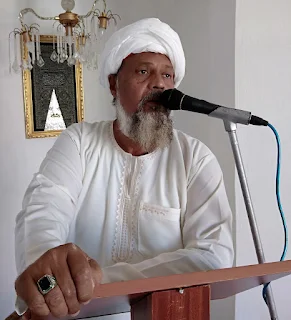Allah (swt) appointed acts of devotion to every community, for them to
celebrate God’s name over the livestock He provided for them. Muslims are
ordained by God to mention His name, on specified days during the Hajj pilgrimage
season, over the livestock He has provided for them. Indeed, Qurbani is
a sacred rite of Islam binding upon devout Muslims everywhere: those who honour
God’s rites show the piety of their hearts, and anyone who honours the sacred
ordinances of God will have good rewards from his Lord, Insha Allah.
As the Holy Qur’an notes concerning sacrificial animals such as Ox
or Camel, ‘There is much good in them for you, so invoke God’s name over them as they
are lined up for sacrifice, then, when they have
fallen down dead, feed yourselves and those who do not ask, as well as those
who do. We have subjected them to you in this way so that you may be thankful. It is neither their meat nor their blood that
reaches God
but your piety. He has subjected them to you in this way so that you may
glorify God for having guided you. Give good news to those who do good.’ (22:37-38)
In this context, devout
Muslims who plan to perform Qurbani may have related questions to clarify and
understand. ‘How to share a Qurbani ?
In case a poor man is giving a Qurbani
and a rich one is giving a Qurbani,
how to share the Qurbani?’
Recently, this
question was put forth in front of our Imam- Jamaat Ul Sahih Al Islam International Hazrat Muhyiuddin Al Khalifatullah
Munir Ahmad Azim (aba) of Mauritius by Khwaja Muhyiuddin Saheb of Chennai, a
disciple. The considered response given by Hazrat Saheb (aba) on the occasion
would be of educative value for everyone who is to perform the Qurbani as part
of the forthcoming Eid-ul-Adha rites.




